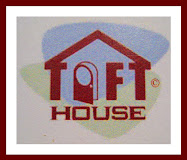 “Play is the highest form of research.” - Albert Einstein
“Play is the highest form of research.” - Albert Einstein
How many of us have heard older folks reminiscing about “the good old days”? An elderly gentleman I knew used to like to say of the days of his youth, “those were gentler times”; when he had that faraway look in his eyes, among other things, he may have been remembering the play and adventures of his childhood. From personal experience, as a child thirty-plus years ago, we didn’t have much of the technology of today or even a schedule when we weren’t in school. We often used to roam the nearby woods with the neighborhood kids. We had games of hide-n-seek, tag, and many child-directed play adventures, even including an imaginary wedding under the leafy forest canopy; contrasted to the high-tech, heavily scheduled lives of many of today’s cell-phone-carrying, internet-savvy kids, it was practically a different world. Some have voiced concerns that the culture of play could be vanishing in the United States.

So what about play? Experts define play as a game or activity
initiated and directed by children. According to Tina Bruce, Professor at London Metropolitan University:
“It is becoming increasingly clear through research on the brain, as well as in other areas of study, that childhood needs play. Play acts as a forward feed mechanism into courageous, creative, rigorous thinking in adulthood.”
The belief in the importance of play for children is gathering support as groups such as Play for Tomorrow, KaBoom, and the US Play Coalition are being established to educate parents, caregivers, and schools, and to foster the culture of play for today’s children.

A recent New York Times article by Hilary Stout sums it up, “An important part of the movement is teaching children themselves how to play. The average 3-year-old can pick up and iPhone and expertly scroll through the menu of apps, but how many 7-year-olds can organize a kickball game with the neighborhood kids?” A booklet offered by one play organization suggests, “Climb on the couch with your friends and pretend you are sailing on a ship to a distant land…lay a toy on the floor and figure out how to build a bridge going over the toy with blocks…make paper doll cutouts from old newspapers and magazines…let your imagination fly.”
Consider how we as parents, educators, or caregivers might set the stage for our children to play with their peers while letting them direct the games, set the rules, and enter into the culture of play. They’ll be learning and creating special memories that they may one day look back on and call “the good old days”.
For more on this topic, click
HERE for the New York Times Article “Effort to Restore Children’s Play Gains Momentum”.

















